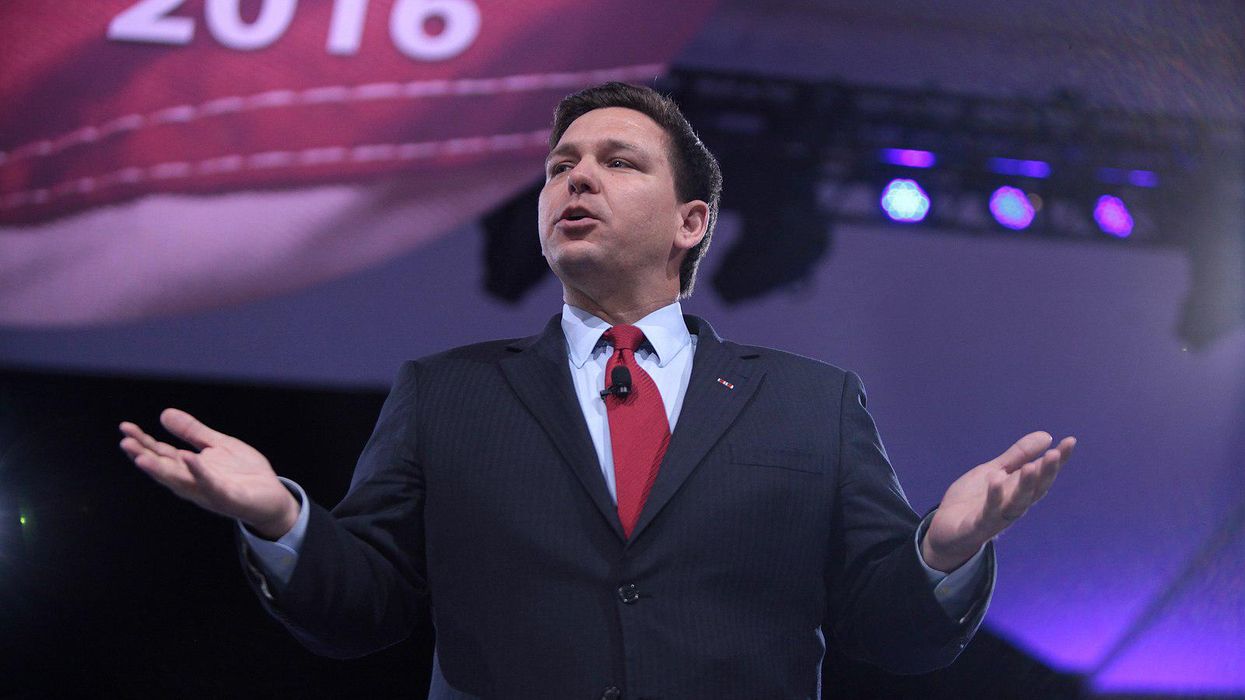So, Ron DeSantis Wants To Be President
Beyond the human price of COVID-19 is the financial toll of treating the sick. Back in the day, conservatives touted fiscal responsibility — that is, keeping the cost of government in check.
But now we have the extraordinary example of Florida Gov. Ron DeSantis, apparently looking to run for president in 2024, backing policies designed to waste the maximum number of taxpayer dollars. From a fiscal point of view, his opposition to vaccine and mask requirements is insanity.
Here are some numbers to consider:
The required two doses of the Pfizer or Moderna vaccines cost the U.S. government less than $40. Either vaccine protects most people from contracting the disease, and for those who do, it lessens the severity, keeping them out of the hospital.
Florida hospitals are now clogged with the COVID-19-infected, with over half of their intensive care beds taken by patients with the virus. The median cost for a stay at an ICU or being on a ventilator in Florida is $234,732 for those without insurance, according to FAIR Health. With insurance, it runs at $115,497.
Oh, but DeSantis now has a cheaper alternative to hospitalization. He is pushing for monoclonal antibody treatments for those already sick. These antibody cocktails, such as Regeneron, seem fairly effective at keeping COVID-19 patients out of the hospital. DeSantis has opened at least 18 clinics in his state to deliver them.
The expense of running these treatment centers aside, Regeneron charges about $2,100 per dose to treat a disease that, again, could have been prevented for under $40. And these numbers don't take into account the care provided to survivors who suffer "long" COVID-19 — people who show disabling symptoms long after the disease has run its normal course.
Across America, the cost of COVID-19 hospitalizations among unvaccinated adults came to an estimated $2.3 billion in June and July alone, according to a Peterson-KFF analysis. Some 84 percent of these hospital admissions were preventable.
Where does the money come from?
Government-run Medicare covers necessary hospital care for older Americans. The Centers for Medicare & Medicaid Services expects hospital payments to go up by $3.7 billion in the fiscal year starting Oct. 1, much of the rise due to COVID-19.
However one may feel about hospitalized adults who could have gotten shots but didn't, the fact remains that many will be handed significant bills for treatment. How much depends on their insurance plan, but some survivors are getting hit with bills in the hundreds of thousands.
If the patient dies, the providers may go after family members or the estate for payment. A man whose father died of the virus reportedly received bills of more than $1 million.
Gone are the days early in the pandemic when many insurers waived the copayment for COVID-19 treatment. And who can blame them? Why not ask patients to pay their share at a time when they could have had their free shots and not become patients?
Despite the enormous amounts Medicare pays for treatment, beneficiaries are still expected to cover hospital deductibles and copays.
DeSantis, meanwhile, continues to defend a law that bans private businesses from requiring vaccines for service — a pain especially for cruise companies trying to draw passengers to their crowded ships. Disney Cruise Line has just joined Carnival, Royal Caribbean, and Norwegian in ignoring the law and are now demanding proof of vaccination for passengers 12 and older.
The Florida governor evidently believes the path to a Republican presidential nomination requires appeasing the right-wing nuts who recently booed even Donald Trump when the former president urged people to get their shots.
Taxpayers should know that they are paying for this idiocy and vote accordingly.
Follow Froma Harrop on Twitter @FromaHarrop. She can be reached at fharrop@gmail.com. To find out more about Froma Harrop and read features by other Creators writers and cartoonists, visit the Creators webpage at www.creators.com






